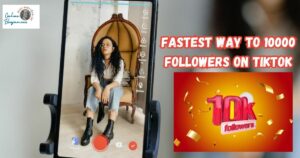Blogging opens a world of possibilities for sharing ideas, stories, and expertise. I have found that using the right tools makes the adventure much smoother. For beginners like me, the variety of available platforms and auxiliary tools may seem overwhelming.
QUICK LOOK: Blogging Tools for Beginners
- Blogging Platforms: I generally recommend starting with platforms such as Blogger or WordPress. These come with reliable support and community forums that allow an easy transition from novice to experienced blogger.
- Writing & Editing Tools: Tools like Grammarly help check grammar, spelling, and punctuation to make sure posts are well written. In addition, Google Docs provides an easy way to draft posts and collaborate if you ever decide to work with other writers.
- Visual Content Tools: Getting involved with engaging images can make a blog more appealing. Canva is excellent for creating custom visuals without requiring advanced graphic design skills.
- SEO & Analytics Tools: By using Yoast SEO, Google Analytics, and even additional tools like Google Keyword Planner and Ahrefs, I can step up my blog’s content visibility and track its growth over time.
I will walk you through the essential blogging tools that can boost your writing, design, and site performance, explaining each so that even newcomers in the digital space feel confident taking the first step.
Essential Blogging Tools for Beginners
Choosing the right blogging tools is key to a rewarding blogging experience. Whether you are setting up a personal blog or a niche content site, the proper combination of platforms and auxiliary apps can help you produce high-quality content while keeping things manageable. In this section, I introduce a few categories of tools that include blogging platforms, writing aids, design tools, and SEO analytics.
I have used many different tools in my own blogging adventure. For creating content, I often rely on platforms such as Blogger, WordPress, Wix, Squarespace, and Ghost. They provide varying levels of customization and simplicity depending on what you need.
Additionally, tools like Grammarly and Google Docs help me refine posts, while Canva assists me in creating attractive visuals. Finally, SEO tools such as Yoast SEO, Google Analytics, and Google Search Console help me understand how my blog performs and how to optimize content for search engines.
Getting Started with Blogging Platforms
Blogging platforms are the foundation of a successful blog. I recommend starting with a platform that suits both your technical skills and the vision for your blog. Some platforms are very simple and free, while others offer more control and customization. Each option has particular strengths, making it easier for you to decide based on your immediate needs and future ambitions.
For instance, I have seen many beginners opt for Blogger due to its ease of use and the fact that it is free. WordPress is popular because of its flexibility and the wide selection of plugins. Wix offers an intuitive drag and drop interface that is ideal if coding isn’t something you are comfortable with.
Squarespace focuses on beautiful design templates, which come in handy if aesthetics are important to your brand. Meanwhile, Ghost provides a clean interface that makes writing the central focus.
A Quick Guide to Setting Up Your Blog
Starting your blog involves understanding a few straightforward steps. I found it useful to focus on choosing a tool that fits my personal style and technical comfort level, and then gradually adding features as I grew more familiar with the process. Setting up a blog can be done in a few key steps that lay a strong foundation for future success.
Here is a brief guide that I always follow when I set up a new blog:
- Pick the Right Blogging Platform: Choose between options like Blogger, WordPress, Wix, Squarespace, or Ghost. Consider factors such as customization, cost, and user interface when making your decision.
- Select a Domain Name: Your domain name is your online identity. This is also essential for building credibility and attracting readers.
- Set Up Your Site Layout: Most platforms provide themes or templates. Start with a design that is simple and user friendly, then tailor it as needed.
- Add Essential Pages: Common pages include an About page, a Contact page, and a Blog page. These help visitors navigate your site and learn more about you.
- Publish Your First Post: Begin by writing a simple introductory piece that explains who you are and what readers can expect on your blog.
Following these steps can make the process of getting your blog up and running straightforward. It helps to keep the setup focused and gradually introduce more complex features as you become more comfortable with blogging.
Considerations Before Choosing Your Blogging Tools
Selecting your blogging tools requires you to consider several practical factors. I have learned that knowing what each tool offers helps me make informed decisions that align with my blogging goals. Below are some common considerations along with tips that I have found useful over time.
- Ease of Use: Tools like Blogger and Wix are known for their user friendly interfaces. If you are just starting out, choosing a platform that offers simplicity can help you focus on content rather than being bogged down by technical issues.
- Cost: Many platforms and tools have free options, but premium features may come at a cost. I recommend beginning with free or low cost solutions until you are sure of your blog’s direction.
- Customization: As your blog grows, you might need more advanced features. Platforms like WordPress offer flexibility through various themes and plugins that can adapt as your skills develop.
- Support and Community: Beginner friendly platforms often have extensive support forums and tutorials. Getting involved with these resources helps solve problems quickly and efficiently.
Ease of Use
When starting out, it is important to use tools that do not require deep technical knowledge. I have found that easy to use platforms allow me to focus on writing and growing my audience rather than troubleshooting technical issues. A simple dashboard and clear instructions ensure that I can work without unnecessary interruption.
Cost
Budget is often a key factor for new bloggers. Many tools, such as Blogger or basic versions of WordPress and Wix, offer free or affordable services. This helps in gradually building your blog without a large initial investment. As your blog takes off, you may choose to invest in premium features for extra benefits.
Customization
The right level of customization ensures that your blog reflects your unique voice. For beginners, platforms with a variety of templates and plugins are the best. I appreciate that WordPress and Squarespace allow me to tailor my blog easily while still providing a professional layout.
Support and Community
Having access to a supportive community can make a big difference at the start. I rely on tutorials, forums, and customer support when I encounter challenges. This support network is invaluable because it often provides quick solutions and practical advice.
Factoring in these considerations helps me make sound decisions about which tools and platforms to choose for my blogging efforts. The right combination minimizes hassles and lets creativity flourish.
Advanced Tips and Tricks for Blogging Tools
After mastering the basics, I started exploring advanced techniques that allowed me to improve my blog further. While basic tools get you up and running, adding a few advanced practices has transformed my blogging experience. These adjustments not only make the process smoother but also help in reaching a broader audience.
- Make the most of SEO Tools: SEO is a critical factor in online visibility. Tools like Yoast SEO for WordPress or plugins for other platforms help optimize your posts. This includes managing meta descriptions, title tags, and keyword density, which in turn improves your blog’s chances of ranking higher on search engines.
- Use Analytics: I closely monitor blog performance using Google Analytics and Google Search Console. These tools provide detailed insights into visitor behavior, traffic sources, and popular content. Understanding these metrics allows you to adjust your strategy to meet your audience’s interests.
- Keep Your Visuals Fresh: Visual content is important to hold a reader’s attention. Canva is a tool that I frequently use to create attractive blog graphics, featured images, and social media posts. This assists in branding and ensures that my blog maintains an appealing look throughout its lifecycle.
- Experiment with Email Marketing: I have seen an increase in reader engagement by integrating email marketing tools like Mailchimp. Building an email list allows you to share updates, promotions, and exclusive content. This practice gives a boost to reader loyalty and drives returning traffic.
These advanced techniques help you upgrade your blog from a basic site to a dynamic online presence. The boosted focus on search engine optimization, analytics, and visuals truly benefits long term growth and reader engagement.
The Basics: Key Tools for a Successful Blog
The right tools can significantly influence the success and quality of a blog. I have learned that having a few trusted items in your blogging toolkit makes a significant difference. In this section, I break down the primary categories of tools that every beginner should consider investing time in.
- Blogging Platforms: I generally recommend starting with platforms such as Blogger or WordPress. These come with reliable support and community forums that allow an easy transition from novice to experienced blogger.
- Writing & Editing Tools: Tools like Grammarly help check grammar, spelling, and punctuation to make sure posts are well written. In addition, Google Docs provides an easy way to draft posts and collaborate if you ever decide to work with other writers.
- Visual Content Tools: Getting involved with engaging images can make a blog more appealing. Canva is excellent for creating custom visuals without requiring advanced graphic design skills.
- SEO & Analytics Tools: By using Yoast SEO, Google Analytics, and even additional tools like Google Keyword Planner and Ahrefs, I can step up my blog’s content visibility and track its growth over time.
This basic toolkit ensures that your blog is well prepared for both content creation and online growth. Consistent use of these tools supplies you with the resources you need for a strong start and continuous improvement.
Learn More About Blogging at Wealthy Affiliate
If you are serious about getting started blogging, I highly recommend you check out the Wealthy Affiliate platform. There, you will find all the tools, training, resources, and support you need to build a successful and profitable blog. Everything from website builder, web hosting, Keyword research tools, and AI-assisted content creation tools.
And, you get all of this for much less than it would cost you if you purchase them separately. Even better, Wealthy Affiliate has a no-risk, no-obligation, free starter membership where you can try it first to see if it is something you really want to do before you invest any money at all. So, you have nothing to lose, and potentially everything to gain.
Frequently Asked Questions

Here are some questions I have encountered while using blogging tools, along with my answers based on practical experience:
What is the best blogging platform for beginners?
Many beginners start with Blogger or WordPress because of their ease of use and extensive support. The best choice depends on whether you prefer a simple interface or more customization options. You might try a free option and then upgrade as your skills grow.
How can I make sure my blog posts are error free?
I use tools like Grammarly and Google Docs to review and polish my posts before publishing. These tools help catch spelling errors and suggest improvements that make the writing clearer.
How do SEO tools improve my blog?
SEO tools such as Yoast SEO guide you with keyword placement, meta descriptions, and readability scores. They help improve your site visibility on search engines, which brings more readers to your blog.
How important are visuals in blog posts?
Visuals make your content more engaging and easier to understand. I use Canva to create detailed graphics and custom images. High quality visuals capture your readers’ attention and can increase the time spent on your page.
Should I invest in premium tools right away?
It is a good idea to start with free or basic versions. As you gain experience and notice the benefits from upgraded features, you might consider paying for premium tools. This way, you can budget your expenses according to your blog’s growth.
Deepening Your Blogging Skills and Creativity
Once you have set up your blog and become comfortable with the basic tools, it is time to dig into the creative aspects of blogging. In this phase, focus on developing your personal voice and experimenting with various formats.
You can mix different writing styles and content types to create a unique narrative that resonates with your audience. Pushing your creative boundaries not only enriches your content but also sets your blog apart from the rest.
Consider planning your content with a detailed calendar. Organizing upcoming posts helps maintain consistency while allowing you to prepare for seasonal topics or special series. Additionally, try varying your posts between how-to guides, personal stories, and detailed reviews.
This variety keeps your content fresh and invites your readers to get involved and share their thoughts. Experimenting with multimedia, such as simple videos or interactive graphics, can add a unique touch to your blog.
Getting involved in the blogging community is really important. Join discussions, comment on fellow bloggers’ posts, and consider guest posting to expand your reach. As you continuously evaluate your content performance using analytics tools, be ready to switch up your approach when needed. This ongoing process transforms your blog into an ever evolving creative adventure that grows with you.
Final Thoughts on Blogging Tools for Beginners
A successful blog relies on the effective use of essential tools. I have learned that by carefully selecting the right blogging platform, editing software, design apps, and SEO tools, you lay the groundwork for a productive writing adventure. Each tool serves a specific purpose, from creating engaging content to analyzing traffic patterns and optimizing your posts.
My experience has shown that starting with simple, user friendly options and gradually integrating advanced features can make the learning curve much less steep. Whether you choose Blogger, WordPress, or another platform, the key is to start writing and allow your blog to evolve over time. Embracing tools like Grammarly, Canva, and Google Analytics can truly help you master the art of blogging.
Begin your blogging adventure with confidence. Explore the available tools, experiment with features, and continue to refine your content. With a strong foundation, I am confident your blog will grow and resonate with readers. Happy blogging!
Check Out Our Most Recent Articles:
- How To Apply AI Automation To Your Social Media Marketing

- AI For Social Media Automation

- 6 Tips on How To Find What’s Hot On TikTok

- Comparing The Different AI Models

- Building An Email List That Monetizes Your Online Content

- Fastest Way To Get 10000 Followers On Tiktok

Wishing You Much Success in Your Blogging,

- onlinebenjamins.com
- thebeachangler.com
- thesinnerinthemirror.com
- Facebook: Online Benjamins
- Twitter: @onlinebenjamin1
- Instagram: dotcomdinero
- YouTube: Online Benjamins
Rex
P.S. Again, Wealthy Affiliate is COMPLETELY FREE to get started. No catch, no obligation, no bait and switch. I will personally be in touch with you upon joining to offer my support and guidance to help you get up and running online.
P.P.S. If you have any questions or are unsure of anything, I am here and I promise I will get back to you on all of your questions and comments. Just leave them below in the comment section. Follow me on Twitter: @onlinebenjamin1, Instagram: dotcomdinero, and Facebook: Online Benjamins.
Hi,
Thanks for stopping by and congratulations for taking the first steps to building your own online business. I’ve been in business both offline and online since 1997. I would consider it an honor to help you build your business. Father of 3, life long outdoorsman with an education in Genetics and Economics. This site is about cutting through the BS and finding the real opportunities in the online world. I look forward to working with you.



